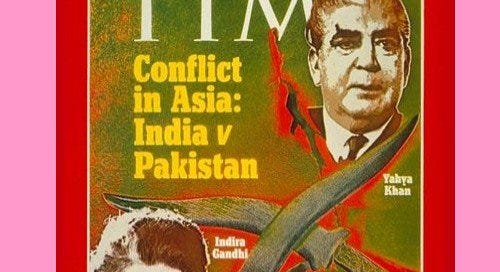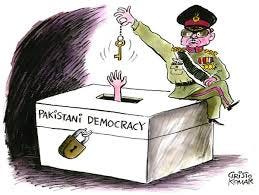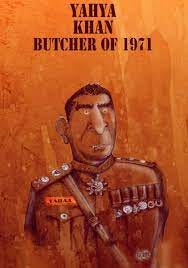Balochistan Exposes Pakistan's Double Standards on Kashmir
Unveiling the Hypocrisy: Pakistan's Contradictory Stance in its Rants on Kashmir and the Ongoing Injustices in Balochistan, POK, and Minority Communities
"Pakistan was born out of confusion, nurtured in paranoia, and sustained by fear." (Pervez Hoodbhoy, noted Pakistani nuclear physicist and activist)
Introduction: Since 1947, successive regimes in the neighbouring Pakistan have been consistent and constant in their cantankerous cacophony on the “core issue” of Jammu and Kashmir, an integral part of India. However, these regimes— of all shades and complexions— have long exhibited double standards when it comes to their mistreatment of Balochistan, their stance qua the portion of Jammu and Kashmir under their illegal occupation (POK), and the rights of their own minority communities. This article aims to examine the historical injustice inflicted upon Balochistan, tracing its coerced accession, and ongoing human rights abuses. By examining the stark divergence between Pakistan's overt actions in Balochistan and its rhetoric on self-determination, human rights, and minority rights, we expose the country's devious double standards. Furthermore, we call for the Indian government, particularly the Ministry of External Affairs, to advocate for justice, disseminate accurate information, and engage in diplomatic as well non-governmental international forums to address these crucial issues, without compromising its immutable stand that the Kashmir issue will be discussed only bilaterally, without any third-party mediation.
Introduction to Balochistan Issue: Let us briefly trace the Balochistan's hereditary Khanate, its insidious accession to Pakistan, and the subsequent illegal occupation and annexation. By scrutinizing the questionable abolition of the Khanate in 1955 and the ongoing plight of Balochistan, we shall not only expose Pakistan's misguided and totally unjustified stand on J&K but also its flagrant violation of the same principles qua Balochistan. The Balochi people— unlike the Palestinians— have neither the resources nor the reach or international support to bring to international focus acts of the Pakistan nation state which, if perpetrated in Europe, could very well be classified as war-crimes. It is imperative for India to apprise the international community to recognize and address this long-standing issue and rally support in favour of the oppressed Balochis, in accordance with the Charter of the United Nations.
The Khanate and Hereditary Rule in Balochistan: Balochistan, with its rich history, was ruled by a hereditary Khanate before the Partition of India. Under the British rule, the Khanate enjoyed significant autonomy in its governance over the region, while maintaining a distinct cultural identity and way of life. However, on March 27, 1948, the Khan of Kalat, Ahmad Yar Khan, was coerced to sign the Instrument of Accession to Pakistan, virtually extinguishing Balochistan's sovereignty and self-determination.
Forced Accession and Illegal Occupation: Balochistan's accession to Pakistan was marred by deception and coercion. The Khan of Kalat, representing Balochistan, initially declared independence but was ultimately “persuaded’ to join Pakistan. This forced accession violated the principles of self-determination and disregarded the aspirations of the Baloch people. Subsequently, Pakistan's military forces invaded Balochistan in April, 1948 and forcibly occupied the region, leading to a prolonged struggle for independence and self-governance.
Abolition of the Khanate and Suppression of Balochistan: In 1955, Pakistan abolished the Khanate system, practically ending Balochistan's autonomy and undermining its unique cultural identity. It became a province of the Republic of Pakistan. The region was subjected to oppressive policies, economic exploitation, and marginalization by the Pakistani establishment. Balochistan's natural resources were exploited without adequate benefits reaching the local population, exacerbating their sense of injustice and deprivation.
The Ongoing Plight of Balochistan: Balochistan continues to face grave human rights violations and repression by the Pakistani state. The Baloch people endure enforced disappearances, extrajudicial killings, and intimidation by security forces. The systematic suppression of dissent and limited political representation have further marginalized the Baloch community. The international community must address these human rights abuses and work towards a just and equitable resolution for Balochistan.
Pak Occupied Kashmir (POK): Denial of Basic Rights and Citizenship: Residents of Pakistan Occupied Kashmir (POK) have long been denied full citizenship rights by Pakistan. This was done for the myth of an “Azad Kashmir” to be first created and then perpetuated. The denial of Pakistani passports to POK residents, who were only allowed to travel abroad on temporary documents, raises questions about Pakistan's commitment to democratic principles. Additionally, the ambiguous status of POK and its lack of representation in the National Assembly of Pakistan highlight the disregard for the rights and aspirations of the people. Recently, the Pakistan Government have announced certain measure but these fall short of the aspirations of the local population.
"Pluralism is not a threat; it is the essence of a diverse and inclusive society." (Raza Rumi, Pakistani author and policy analyst)
Discrimination Against Minority Communities: Pakistan's discriminatory practices against its minority communities, including Hindus, Sikhs, Christians, and the Ahmadiyya community, constitute severe human rights violations. Forcible conversions, virtual kidnapping of young women, including under-age girls, from the above microscopic minorities and subsequent “nikahas” are becoming increasingly common. The local administration, including the judiciary, is a mute spectator at best, and an active colluder in many cases. These communities face marginalization, limited religious freedoms, and targeted persecution. Such discriminatory actions undermine Pakistan's flimsy claim of being a just and inclusive Nation, warranting international attention and advocacy for the rights and protection of these oppressed communities.
The MQM and the Struggle of the Muhajir Community: The Muhajir community, who migrated from India to Pakistan after the Partition, has also faced discrimination and marginalization. The Muttahida Qaumi Movement (MQM) emerged as a political force representing the Muhajir community's aspirations for equal rights and representation. The struggles faced by the Muhajir community further expose the inconsistencies and double standards within Pakistan's policies. Although, MQM may not be a significant factor any longer, its earlier rise bears a testimony to the oppressive policies of Pakistan as a Nation state.
Way Forward: A Call to Action for Justice and Advocacy: To address Pakistan's double standards, especially to counter and combat it’s belligerent domestic and international propaganda on Kashmir, it is imperative for the Indian government, particularly the Ministry of External Affairs, to expose Pakistan's atrocities and transgressions regarding Balochistan, POK, and the mistreatment of its minority communities. Indian media, civil rights organisations, intellectuals and eminent journalists, think-tanks, and Indian diaspora abroad should supplement the efforts of the Government. India should share accurate information, domestically and internationally, ensuring that the truth reaches the educated Indian audience, including Indian expatriates, policymakers in influential foreign countries, and neighboring nations, such as Afghanistan and Iran.
By turning a spotlight on Pakistan's double-standards, advocating for justice, and disseminating information within India and in international forums, we can foster a more informed and equitable global dialogue, apart from blunting their virulent criticism of India’s policies and administration qua its sovereign territory of what are now the Union Territories of Jammu & Kashmir and Ladakh.
"The tragedy of Pakistan is that it has been unable to define a national identity that can accommodate its diverse population." (Mohsin Hamid, Pakistani novelist)
What you can do? If you learnt something new with reference to Pakistan’s Balochistan treachery and think that some informed fellow-citizens shall appreciate being apprised, please make sure this article reaches them. You would have contributed your mite to the service of the nation and exposing the designs of our ever-scheming neighbour.






